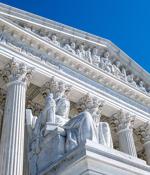Security News

Brazilian Supreme Federal Court Justice Alexandre de Moraes banned Telegram on Friday from operating in the country and asked the National Telecommunications Agency to notify internet providers to block the messaging app within five days. Although Telegram complied with some court orders to block accounts used to spread disinformation on its platform, the messaging platform failed to comply with points of the Court's decision, including providing registration information for the blocked accounts to Justice.

Julian Assange has all but lost his fight against extradition from Britain to America after the UK Supreme Court said his case "Did not raise an arguable point of law." Assange's fiancée Stella Moris described the Supreme Court rejection of her betrothed's legal efforts as "Corrupting," saying: "Julian was just doing his job, which was to publish the truth about wrongdoing. His loyalty is the same as that which all journalists should have: to the public. Not to the spy agencies of a foreign power."

A man found guilty of using the Coinhive cryptojacking script to mine Monero on users' PCs while they browsed the web has been cleared by Japan's Supreme Court on the grounds that crypto mining software is not malware. Tokyo High Court ruled against the defendant, 34-year-old Seiya Moroi, on charges of keeping electromagnetic records of an unjust program.

India's Supreme Court has taken the unusual step of commissioning a Technical Committee to investigate whether the national government used the NSO Group's "Pegasus" spyware on its citizens. Discomfort with India's use of Pegasus has bubbled along ever since, helped by several petitions that sought to determine the extend of government spyware usage, and whether or not it was constitutional.

In a ruling delivered today, the court sided with Van Buren and overturned his 18-month conviction. In a 37-page opinion written and delivered by Justice Amy Coney Barrett, the court explained that the "Exceeds authorized access" language was too broad. Justice Barrett said the clause was effectively making criminals of most US citizens who ever used a work resource to perform unauthorized actions, such as updating a dating profile, checking sports scores, or paying bills at work.

The United States Supreme Court has ruled that a police officer who received money for obtaining data from a law-enforcement database for an associate did not violate a controversial federal hacking law, marking a victory for the ethical hacking community by limiting the law's scope. In a landmark ruling in Van Buren v. United States, the court ruled that former Georgia police sergeant Nathan Van Buren did not violate the Computer Fraud and Abuse Act of 1986 when he accessed a police database to retrieve information about a license plate in exchange for $6,000 in cash.

The Supreme Court on Thursday limited prosecutors' ability to use an anti-hacking law to charge people with computer crimes. The justices ruled prosecutors had overreached in using the federal Computer Fraud and Abuse Act to charge him.

Today, the US Supreme Court restricted the scope of the federal Computer Fraud and Abuse Act after overturning the conviction of a Georgia police officer who searched a police database for money. The CFAA is a cybersecurity bill created in 1986 that prohibits unauthorized access to computer systems and networks or acts that "Exceeds authorized access." Due to the vague nature of the bill, the CFAA can be broadly interpreted to allow harmless actions such as violating a website's terms of service or violating corporate policies by using work devices to access personal accounts on social sites.

The US Supreme Court on Thursday limited the scope of the 1986 Computer Fraud and Abuse Act in a ruling that found a former sergeant did not violate the law by misusing his access to a police database. The CFAA prohibits accessing a protected computer "Without authorization" and accessing a protected computer in a way that "Exceeds authorized access." The problem with these ill-defined terms is that there's been disagreement in different courts over whether the law imposes criminal liability for violating Terms of Service agreements.

Google has urged the UK's Supreme Court to throw out a £3bn lawsuit brought by an ex-Which director over secretly planted tracking cookies on devices running Safari, on the grounds that local law doesn't allow for opt-out class action lawsuits. The case, being heard over two days this week in the Supreme Court, the final court of appeal in Britain for civil cases, has huge implications for legal businesses and investors as well as data protection law.